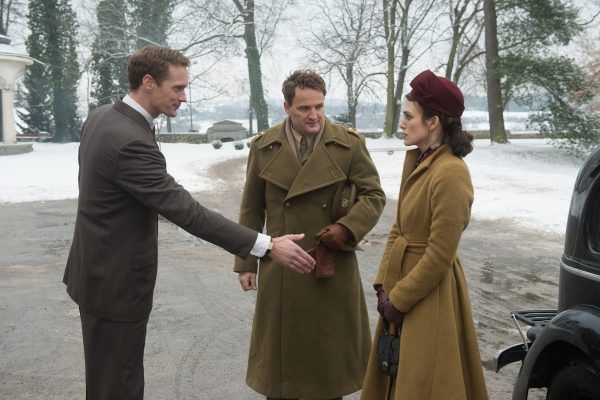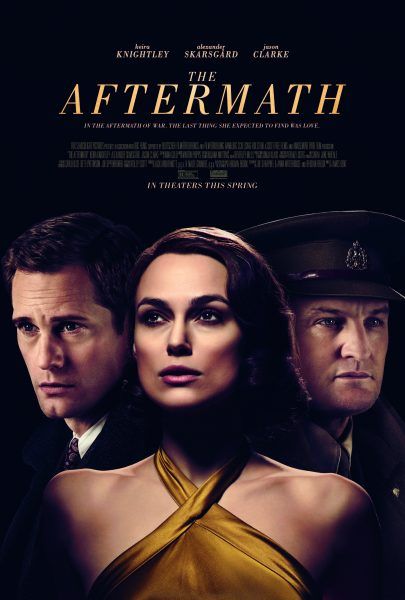It’s almost impressive how The Aftermath studiously avoids being interesting. It features characters going through real hardship in a setting filled with strife, and yet the film never rises above a middling melodrama. The story should delve into interesting questions of guilt and responsibility, and instead it reduces everything to marriage problems and personal rebellion. If the film wasn’t so lovingly shot and earnestly acted, James Kent’s movie would be kind of gross with how it uses real suffering as a springboard into nothing. What should be a difficult story about love and loss fails to conjure any emotions whatsoever.
Set in Hamburg, Germany five months after the conclusion of World War II, the story follows Rachael Morgan (Keira Knightley), who has joined her husband Lewis (Jason Clarke), a British officer. The British government has requisitioned the house belonging to Stephen Lubert (Alexander Skarsgård) and his daughter Freda (Flora Thiemann) for the Morgans to use, but the Morgans have allowed the Luberts to stay in the attic rather than live in the camps. However, tensions in the household are high as Rachael struggles to forgive the Germans for the death of her young son, and Freda holds the British responsible for the death of her mother. However, the distance between Rachael and Lewis leads to an unexpected spark between Rachael and Stephen, who begin an unexpected love affair.
Everything in The Aftermath is woefully underdeveloped. Rachael is cold and distant towards Stephen until some scene where she learns Stephen is an individual who has experienced his own sense of loss and not a Nazi sympathizer, and then she’s ready to fall into his arms. The post-war setting is rarely used beyond Lewis’ work (which is never made totally clear) and Freda’s relationship with a young Nazi sympathizer, and neither one really delves into the chaos of a post-war setting. Post-war Hamburg is just a backdrop, and the cost of the war really never adds up to more than “There were losses on both sides.”
That’s a painfully irresponsible way to look at post-war Germany and what it meant for Germans. There’s a single scene where Stephen’s loyalties are questioned, and it’s really meant to absolve the viewer of any guilt for liking the character. We’re told that Stephen was completely ignorant of the atrocities committed by the Nazis and that he was never a member of the Nazi party. And the film just leaves it there! There’s so much interesting material to dig into for what it means to be a “Good German”, and instead we’re just left to believe that Stephen never wondered why the Leibowitzes stopped coming around for dinner after 1940.
One could argue that the real focus of the story isn’t the aftermath of World War II, but the aftermath of the personal losses Rachael and Stephen have both suffered. But even there, those losses are rendered in broad strokes. Rachael and Lewis had a son named Michael. He liked to play the piano. He has a shirt that Rachael sometimes snuggles. And that’s it. That’s the sum of who their son was, and we learn even less about Stephen’s late wife. These losses are simply there so that Rachael and Stephen have some common ground, and then that common ground will later be used so they have sex. I don’t mind that the characters take solace in each other; I mind that it’s completely unearned because the storytelling is so painfully lazy at every turn.
Instead of using the grief and loss war creates, The Aftermath adds up to nothing more than a torrid love affair. The performances are perfectly fine and it’s a handsomely made picture, but it’s all in service to a painfully underutilized narrative. If these characters are really suffering through the loss created by war, and they’re surrounded by a country where everyone is suffering through a similar grief, then we as an audience should feel it. We should see that war itself isn’t hell, but also what war leaves behind. Instead, for director James Kent, all that remains are bland relationships and longing gazes.
Rating: D-




